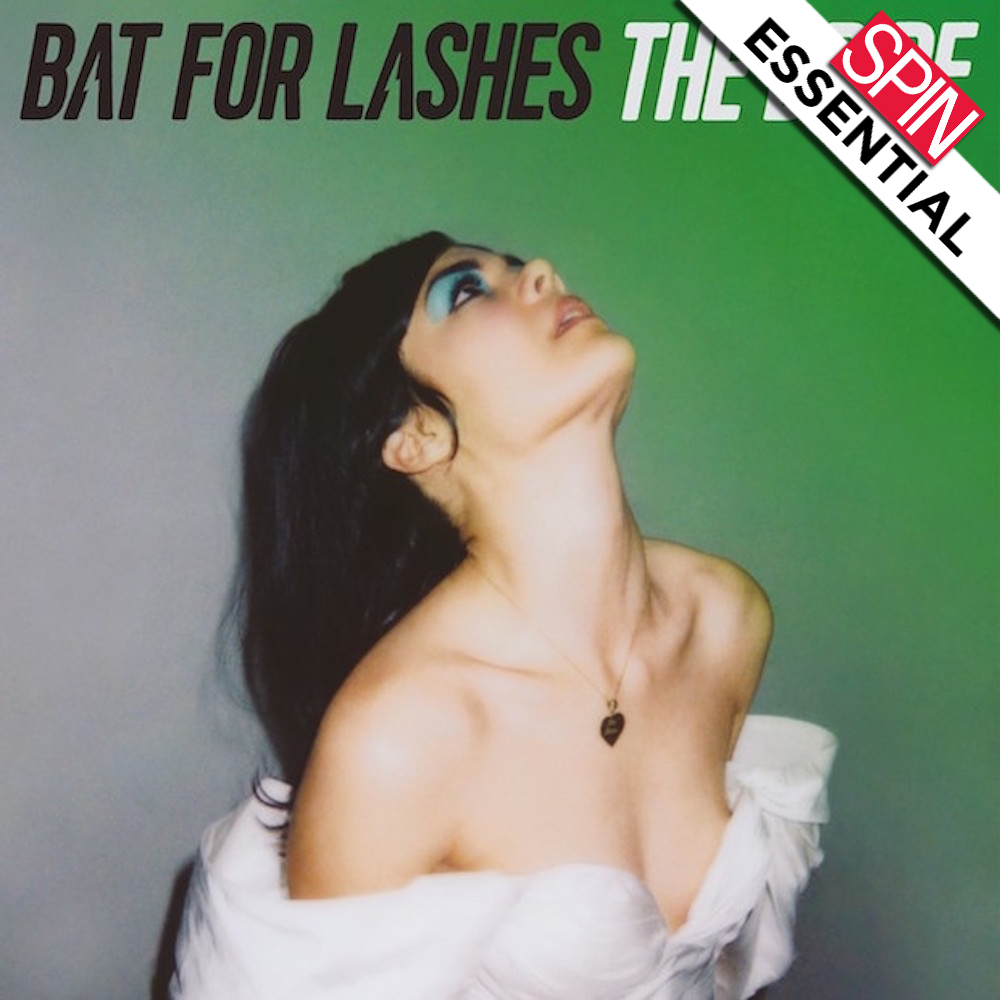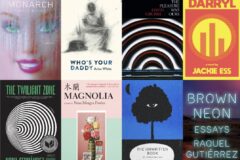Release Date: July 01, 2016
Label: Parlophone
Ten years ago, Natasha Khan asked “What’s a Girl to Do?” on her 2006 breakthrough single, not as a damsel in distress but a woman who simply lost the thrill of being in love. She would go on to fill albums No. 2 and 3 — 2009’s Two Suns and 2012’s The Haunted Man, respectively — with restless characters, ones often plagued by their constant need to seek love and guidance outside themselves. It’s safe to say that Khan (or at least her alter ego, Bat for Lashes) has struggled to find that fairytale ending. But now she’s The Bride: pure, innocent, infinitely hopeful.
It’s an archetype Khan deliberately plays right into, opening her fourth album as saccharine and flat-out Disney as possible. The modest, melancholic girl has met her prince (“All of the sorrow will drop away / Like dew from a flower in bloom / When you say ‘I do'”), and she whimsically trills through a misting of harp. But her bliss is fleeting; the ominous “Joe’s Dream (Don’t Say Goodbye)” soon finds her groom haunted by “angels at his bedroom door” as a keyboard and guitar wobble anxiously underneath, while the beat thumps with the heaviness of a heart under siege. The Bride then finds herself “In God’s House,” where synths permeate the space, sparkling like increasingly blinding strobe lights. Eventually Khan’s bone-chilling falsetto swiftly shatters the whole scene: Her intended has just died on his way to the wedding.
What’s to follow is a set of moody torch songs with parallel purposes: one to carry the Bride through her grief, the other to follow Khan’s quest in dismantling every bit of that fantasy of love and marriage so infused in our collective unconscious. She’s flipped the script on us, and in doing so has created her most cohesive work — and maybe even her happiest ending yet.
Throughout, Khan’s voice takes center stage — just as any bride’s should. She lets it slide seductively around woozy guitars, setting the stage like it’s a spaghetti Western on “Honeymooning Alone,” then again over throbbing bass and synths on “Sunday Love,” which is in the running for saddest wedding jam ever, fueled by the type of boiling adrenaline that scorches through the veins of anyone grappling with grief.
Khan’s intention to pair The Bride with a feature film becomes especially clear around “Never Forgive the Angels,” which swells with bluesy guitar before revealing itself as a piano-tinkling dirge. The campy “Widow’s Peak” deserves a starring dramatic role; it’s where her ethereal whisperings (of demons, moon halos, and a god of lightning) wade through rain, thunder, and piercing angelic wails.
But it’s the subtler details — the warped strings slithering through “Close Encounters,” the soft guitar picks guiding “Land’s End” — that truly magnify the Bride’s torment and Khan’s own eerie telling of it, her vocals bewitching as ever in their magnetism. By piano ballad “If I Knew,” the missions of both the Bride and Khan seamlessly merge. The former reaches her final grieving stage (acceptance), while the latter — evoking a wistful Karen Carpenter — comes to her own big revelation: “There was a mountain I had to claim as mine… The mountain had a mirror inside,” she softly murmurs. “I thought it was you I’d been searching for / Somehow I am the mirror, the mountain, the door.”
With those words, the Bride has realized the ultimate truth: No, we don’t need to be swept off our feet to be saved, because love is already inherent within us. Fittingly robed in lush, lilting strings, final track “In Your Bed” embraces this idea, giving us the closest thing to a fairytale ending that we could hope for. Of course, the Bride must endure an unthinkable tragedy to get to this point. Khan’s meticulous tearing down of one romantic myth has actually validated another: that only through suffering can one attain clarity.





